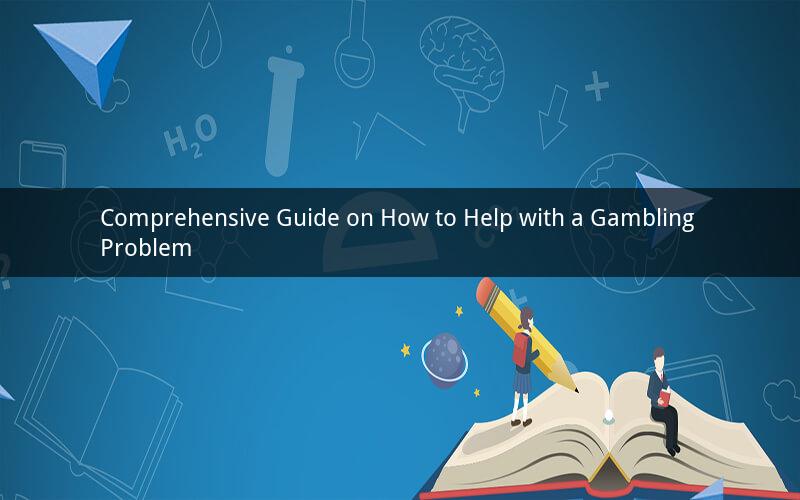
Introduction:
Gambling addiction is a significant issue affecting millions of individuals worldwide. Recognizing the signs of a gambling problem and taking appropriate steps to help someone struggling with it is crucial. This article provides a comprehensive guide on how to help someone with a gambling problem, covering various aspects such as understanding the addiction, communication, support systems, and professional assistance.
Understanding the Gambling Problem:
1. What is a gambling problem?
A gambling problem, also known as problem gambling or gambling addiction, refers to an uncontrollable urge to gamble, despite the negative consequences it may have on an individual's life, including financial, emotional, and social aspects.
2. Signs of a gambling problem:
- Preoccupation with gambling, even when it's not happening.
- Needing to gamble more money to achieve the same thrill.
- Feeling restless or irritable when unable to gamble.
- Reckless behavior, such as taking out loans or selling personal belongings to fund gambling.
- Lying to family, friends, or therapists about gambling activities.
- Continuing to gamble despite knowing the consequences.
Communication:
1. Approach the topic delicately:
When addressing someone with a gambling problem, it's essential to be gentle and non-confrontational. Use "I" statements to express your concerns without placing blame.
2. Listen actively:
Give the person your undivided attention and listen to their thoughts and feelings without judgment. This helps build trust and encourages them to open up about their struggles.
3. Express your concerns:
Clearly communicate your concerns about their gambling behavior and its impact on their life. Use examples to illustrate the consequences and emphasize the importance of seeking help.
Support Systems:
1. Encourage seeking professional help:
Encourage the individual to consult a mental health professional who specializes in gambling addiction. Therapy can provide them with the necessary tools and support to overcome their addiction.
2. Support groups:
Encourage the person to join a support group for individuals struggling with gambling addiction. These groups offer a sense of community and understanding, as well as practical advice and coping strategies.
3. Financial support:
Assist the individual in managing their finances to prevent further gambling-related debt. This may involve budgeting, setting limits, or seeking financial counseling.
4. Emotional support:
Offer emotional support by being there for them during their journey. Encourage them to share their feelings and experiences, and be a source of comfort and encouragement.
Professional Assistance:
1. Therapeutic approaches:
Therapy can be an effective tool in treating gambling addiction. Cognitive-behavioral therapy (CBT) helps individuals identify and change negative thought patterns and behaviors associated with gambling. Other therapeutic approaches, such as motivational interviewing and family therapy, may also be beneficial.
2. Medication:
In some cases, medication may be prescribed to help manage the symptoms of gambling addiction. Antidepressants, mood stabilizers, and anti-anxiety medications may be considered under the guidance of a healthcare professional.
3. Inpatient or outpatient treatment:
In severe cases, inpatient or outpatient treatment programs may be necessary. These programs offer intensive therapy, support, and resources to help individuals overcome their addiction.
4. Legal assistance:
If the individual has accumulated significant debt due to gambling, seeking legal assistance may be necessary. A lawyer can help negotiate with creditors and explore options for debt relief or bankruptcy.
Conclusion:
Helping someone with a gambling problem requires understanding, patience, and a willingness to support them throughout their journey. By recognizing the signs of addiction, engaging in open communication, encouraging professional help, and providing emotional and financial support, you can make a significant difference in their recovery process.
Questions and Answers:
1. Q: How can I determine if someone has a gambling problem?
A: Look for signs such as preoccupation with gambling, increasing the amount of money they spend on gambling, lying about their gambling activities, and experiencing negative consequences due to their gambling.
2. Q: What should I do if I suspect someone is struggling with a gambling problem?
A: Approach them delicately, express your concerns without placing blame, and encourage them to seek professional help. Offer your support and be there for them throughout their journey.
3. Q: Can therapy help someone overcome a gambling problem?
A: Yes, therapy can be an effective tool in treating gambling addiction. Cognitive-behavioral therapy (CBT) and other therapeutic approaches can help individuals identify and change negative thought patterns and behaviors associated with gambling.
4. Q: How can I support someone who is struggling with a gambling problem?
A: Offer emotional support, encourage them to seek professional help, assist them in managing their finances, and be there for them during their journey. Joining support groups and providing practical advice can also be helpful.
5. Q: Is it possible for someone to recover from a gambling problem?
A: Yes, recovery from a gambling problem is possible. With the right support, therapy, and determination, individuals can overcome their addiction and lead a healthier, more fulfilling life.